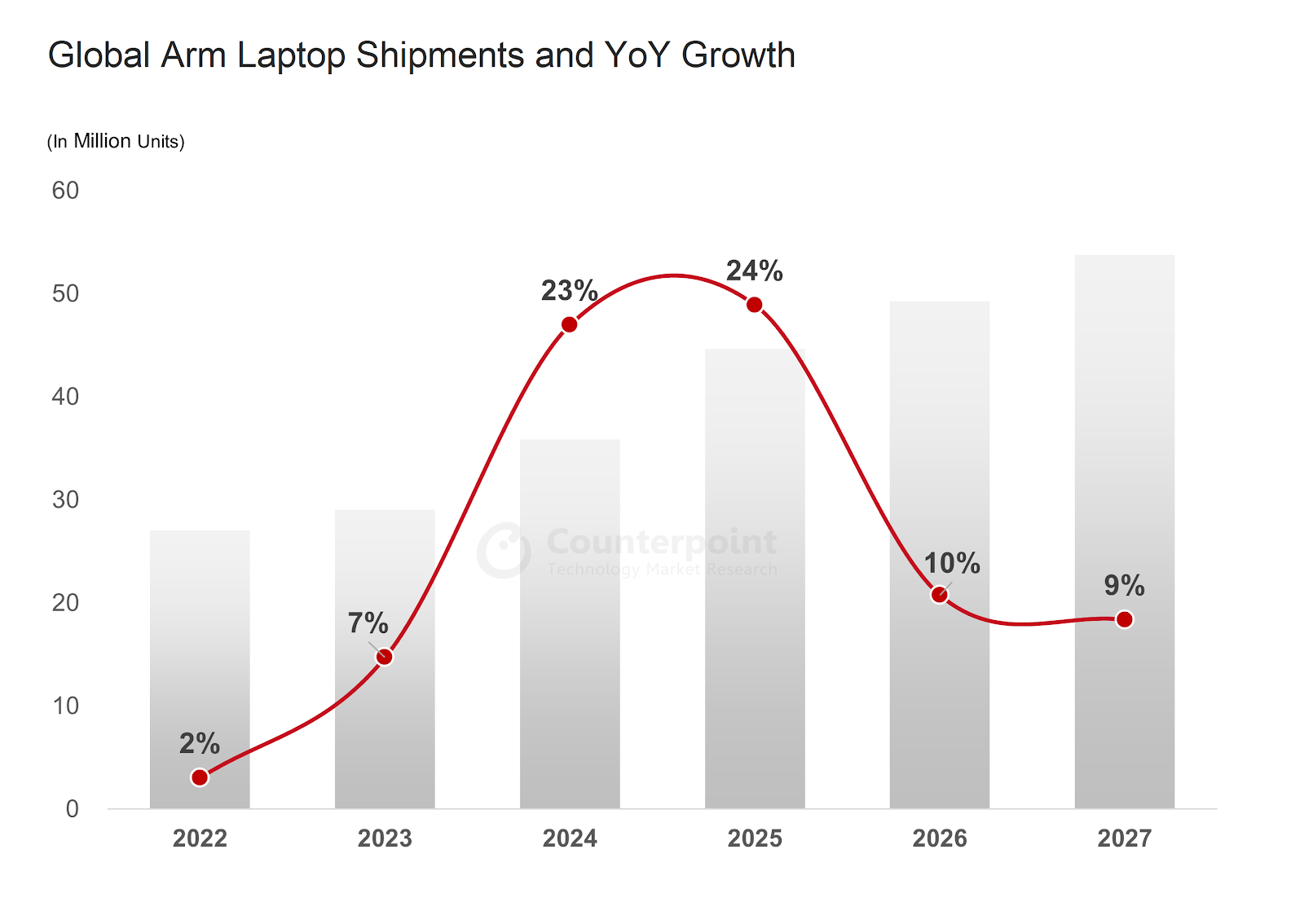Last year, the demand came down by 15 percent year over year, and it is expected that the same trend will be observed in 2023 as well. While PC manufacturing companies were experiencing a downfall, tech giant Apple’s new MacBook series continued to resist the trend. ARM-based laptops could be able to save themselves from getting caught up in the declining demand trend.
Three years ago, in 2020, Apple introduced the newly designed M1 chipset for its MacBooks. This chip-enabled other Apple products, including the iPhone, to be operated similarly in terms of computing performance. The ARM laptops started with a 2 percent market share and reached 12 percent last year, which accounted for 90 percent of the total ARM laptop sector.
Other players in the industry, such as MediaTek and Qualcomm, have also shown an interest in ARM chips. Despite facing technical difficulties and cases against the product, the report predicts that by 2024, these two companies will be introducing their ARM-based personal computers as well as laptops, which could lead to 50 percent year-over-year growth.
With PC demand all set to go down in the ongoing year, Intel will be affected the most, as the company could lose 10 percent of its market share while competing with ARM laptops. The report has predicted that four years from now, ARM-based systems will account for 25 percent of the total PC and laptop industry, and the solution will keep expanding over time.
Furthermore, two years from now, it is expected that the ARM industry will have more than 21 percent of the market as the industry’s expansion rate will keep pace. Factors such as consumer awareness of ARM solutions in comparison to Intel’s X86 will play an important role in the upcoming trend.


Read next: Demand for autonomous cars is speeding up
